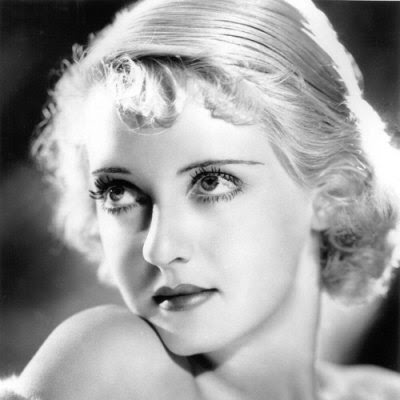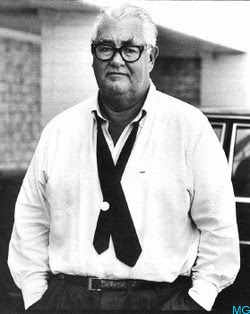Genre: Drama
Premise: We chronicle the infamous career-long battle between screen legends Joan Crawford and Bette Davis, specifically on the set of the only film they ever made together, “Whatever Happened To Baby Jane.”
About: I believe this script is optioned but has not been purchased. The details are a little sketchy. What I can tell you is it came highly recommended from a trusted source. The main film it chronicles, “Whatever Happened To Baby Jane,” was made in 1962 for 980 thousand dollars.
Writers: Jaffe Cohen & Michael Zam
Can somebody say, “Cat Fight?” Rrrreow. I’m going to be honest with you, I’d never seen a Joan Crawford or a Bette Davis film until yesterday. In fact, my cinema I.Q. goes down about a hundred points when discussing anything before 1960. I love Jimmy Stewart. Citizen Kane is rad. Hitchcock rocks. But outside of a few other highlights, it’s all a bunch of black and white over-glamorized over-acted close-ups. I know, I know. The Golden Era of Film and blah blah blah. It’s just really hard for me to get into that time. That’s a long way of saying I knew very little about Joan Crawford and Bette Davis before reading this script. And I definitely didn’t know anything about this lifelong rivalry/feud of theirs. So before I read it I did a little research into the women that pioneered the word “diva” and came away convinced that both of them were completely fucking nuts.
I’m basing this off the writers’ descriptions but for the uninitiated, *on-screen* Joan Crawford was basically the hottest movie star on the planet (Megan Fox type?) and *on-screen* Bette Davis was basically the best actress on the planet (a kind of Kate Winslet?) But we’re not meeting these actresses in their prime. No no. We’re meeting them after all the bright lights and adoring fans have disappeared. They’re in their 50s now, still respected but too old to be headlining anything.
Joan approaches auteur director of his time, Robert Aldrich, with a book she wants to turn into a movie called, “Whatever Happened to Baby Jane?” You might recognize Aldrich’s name. He was the director of The Dirty Dozen. But see that movie was still another five years away. At this point, he had about as much clout as Pauly Shore in getting his next movie made. Anyway, “Baby Jane” seemed like a good bet as it was a contained dark thriller, and another contained dark thriller had just opened in the U.S.. You might remember it. It was called “Psycho” (How appropriate, right?). The issue was a simple but daunting one. The movie centered entirely around two women in their 50s, and Joan wanted Bette Davis to play opposite her. Everybody knew these two detested each other but the reality was, they had become a couple of old movie stars cashing in on their former glory. But the press and media attention surrounding them working together would be unmatched – potentially catapulting them back into superstardom, particularly if the movie delivered. As reluctant as Bette was at first, she too recognized the opportunity here, and signed up.
Now here’s where things get funny. The synopsis of the film reads, “Two aging film actresses live as virtual recluses in an old Hollywood mansion. Jane Hudson (Bette Davis), a successful child star, cares for her crippled sister Blanche (Crawford), who’s career in later years eclipsed that of Jane. Now the two live together, their relationship affected by simmering subconscious thoughts of mutual envy, hate and revenge.” Not only were they playing opposite each other, they were playing opposite each other in roles that perfectly fit their real life personas! It would be like putting Bruce Willis in a Michael Bay movie about an actor and director who hated each other (then again it seems like everyone hates Bruce Willis these days).
As soon as production began, the claws came out. Joan gave all the crew members gifts so they’d treat her better than Bette. Bette way overdid her make-up and costume to make sure she upstaged Joan. The two pouted, threw fits, talked behind each others’ backs to the media. And poor Aldrich had to endure it all, spending the majority of his time playing babysitter to these alcoholic chimney smoking lunatics rather than directing (I hear those eyebrows alone are a direct result of helming “Baby Jane”). And yet because there was so much real life going on behind each performance, the dailies came back celluloid gold.
To be honest though, I was a little disappointed with this portion of the screenplay because my research led me to believe this was the on-set battle to end all on-set battles. Yet the actual blows seemed minor by today’s standards. For example, in a scene where Bette serves Joan a dead rat, Bette switches out the rubber one with a real one. Or later, Joan replaces Bette’s chocolates with packed meat. Packed meat?? I thought these two hated each other. What about poison?? Then there was a scene where Bette, who had a bad back, had to pick up Joan, so Joan added a belt of heavy weights underneath her clothes to make herself extra heavy. Is it just me or are these the kinds of hijinks you might expect on an episode of I Love Lucy? When I compare them to what went down with someone like Orson Welles, who was basically blacklisted out of Hollywood for upsetting William Randolph Hearst…it just didn’t feel like that all-out war I was hoping for.
Luckily, Best Actress wasn’t just about “Baby Jane.” It was about what happened afterwards when Bette Davis was a shoe-in for an academy award then lost because Crawford called all of Hollywood and told them not to vote for her. It’s about these desperate actresses so terrified of being left behind, that a year later after each had endured another bomb, they actually worked together again (in a movie Crawford was later fired from), choosing pure misery if it gave them even an inkling of a chance to hold onto that spotlight for a little longer. And it’s about these two kooky human beings developing a strange bond and respect for each other, despite all that happened between them.
Best Actress was fun. It taught me about a piece of history I knew nothing about and it did so in an entertaining way. The strength here is obviously these two titans, their obsession with fame, and what it brings out in them. I actually realized after finishing the script that its structure was quite loose. Yet it works because we were so obsessed with these insanely complicated characters. As far as its faults, there are a few. I did wish their on-set war was a bit more extreme. Audiences these days aren’t going to think much of an actress trying to throw out another actresses’ back. You might be stuck with history here, but if there’s any way to make these things more menacing, more intense, I believe the script will benefit from it. But other than that, Best Actress was a nice change of pace from all the thrillers, comedies, and action flicks I’ve been reading of late. Check it out if you’re in any way curious. Then do what I did and go rent “All About Eve” and “Whatever Happened to Baby Jane?” Watching each is a riot once you have some background on the two.
[ ] What the hell did I just read?
[ ] barely kept my interest
[x] worth the read
[ ] impressive
[ ] genius
What I learned: Despite its loose structure, Best Actress works. Why? Simple. It goes back to the most basic element of drama: conflict. You have two people who hate each other. That simple conflict drives the entire movie. Now conflict comes in many forms and you don’t want to have two people at each others’ throats for every movie. But if it fits, that intensity, that energy, can add a surprising amount of drama to your story.





